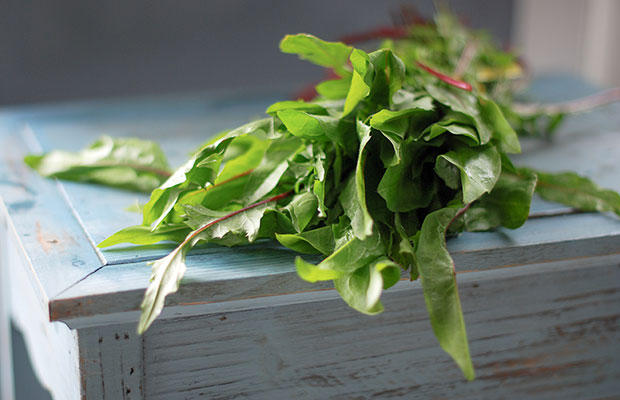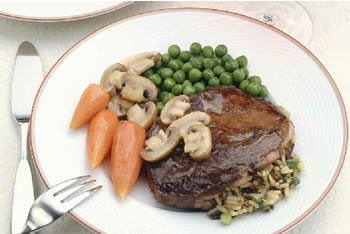Renovating your gut can work wonders for your health, especially when it comes to weight loss, says Gerard Mullin, MD, author of The Good Gut Diet (published by Rodale, which also publishes Prevention.). "When I entered college I was morbidly obese. So I decided to create my own diet plan, one that was rich with fiber. I now realize that I'd developed a way of eating that was supporting the growth of friendly bacteria in my gut with prebiotic fiber-rich foods and live yogurt cultures," he says. "I realized that it wasn't my fault that I was so large. I hadn't been eating lots of junk food; I was just unknowingly eating the wrong foods. If you're overweight, it's likely not your fault either."
Don't just dump food into your stomach and call it a day. Feed your gut the right foods to enjoy some major health perks.
Fermented Foods

Fermented foods are a delicious way to eat healthy bacteria. This includes foods like miso soup, sauerkraut, and pickles (but fresh or homemade pickles, not the kind you'd find in the center aisles of your grocery store).
An all-star fermented food is kefir. "Kefirs have a lot of live bacteria," says Mullin. "The bacteria in yogurt are heat-killed, and then they add some bacteria back, so it's weaker in bacteria content—unless you make it yourself." He also recommends opting for grass-fed, if possible, since it'll be higher in anti-inflammatory fats. Plus, it's super easy to make kefir yourself!
Leafy Greens

There is so much to love when it comes to leafy greens—from bone-building arugula to attention-boosting mustard greens. Let's add one more super power to these superfoods: They're gut-healthy. "Green leafy vegetables are excellent to grow the microbiome and shift metabolism," says Mullin.
Berries

"When you think about foods for the gut, you think about foods that are fibrous," explains Mullin. That makes berries one of his top choices. "They're loaded in fiber, so that helps feed the good bacteria." Plus, he points out, their anti-inflammatory phytonutrients are disease-fighters. Blueberries are heart healthy, blackberries can help you detox, and strawberries may protect against Alzheimer's disease.
Nuts

Don't let the high fat content scare you away from nuts, says Mullin. "Nuts are loaded with anti-inflammatory fats," he says. The best way to eat nuts is to use them as a swap for unhealthy, saturated fats. Instead of opening a bag of chips, opt for a handful of walnuts, a nut that Mullin says has been associated with lower rates of colon cancer.
Fruits

While berries get a special shout-out, other fruits are healthy, too. Mullin is a fan of seedless red or black grapes. And if you like apples but can't stomach the fructose, give one a bake. "Some people have intolerances to apples because they're high in fructose, but if you bake it, it's full of pectin and pectin is great for your gut bacteria," he adds.
Gut-Wrecker: The Standard American Diet
Unfortunately, the foods that are staples in the standard American diet are doing major damage. The first issue: GMOs. These plants are designed to withstand high levels of herbicide, but that means that more chemicals are showing up in your food. "The studies out there are mostly done on animals, but they're raising concerns on what GMOs do to the microbiome," says Mullin. "There's this area of uncertainty, and it's best to stay away from areas of uncertainty until proven otherwise."
Another problem with the standard American diet is that it's high in pro-inflammatory saturated fats. "A good grass-fed occasional steak, wild bison, or antibiotic-free chicken—those are all good choices for protein," says Mullin. "But the American diet is high in red meat and saturated fats; they are pro-inflammatory in nature." Also, while not a saturated fat, he includes corn oil on that list of fats to stay away from because it's pro-inflammatory, too.




